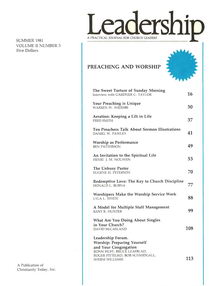Erich Maria Remarque (author of All Quiet On The Western Front) once told the following story: During the confusion of an infantry attack, a soldier plunged into an out-of-the-way shell hole. There he found a wounded enemy. The sight of the man with his fatal wound moved him so, that he gave him a swallow from his canteen. Through this bit of human kindness, a certain brotherly bond immediately sprang up between them The bond became deeper as they tried to chat a bit. The dying man obviously wanted to talk about his wife and children on whom his last thoughts centered. He pointed to his shirt pocket. Understanding this gesture correctly, the German soldier extracted a wallet from it and took out a few family pictures. The gaze of the wounded man wandered over them with sadness and infinite love. The German soldier was deeply touched at that; minutes ago he would have stabbed the enemy with his bayonet; minutes ago all of his battle instincts were unleashed, as was natural in an attack. And now one of the enemy lies before him- and is no longer an enemy; he is simply a man, a father and a husband, one who loves and is loved, one who defended his home, and who now must bid farewell to everything he holds dear. All at once the German soldier is confronted by that other man in a completely different way. It suddenly becomes clear to him that the friend/foe relationship is by no means the only one, but that behind it, or above it, there is an immediacy to the other person-who lives, as I do, in a house amid loved ones, and who, as I do, has his joys and cares.
What happened in that shell hole? Did the German soldier suddenly remind himself of his duty to love his fellow man, fight back the ferocity of his battle instinct, and force himself to a gesture of human kindness? No, something quite different occurred. Instead of his having to struggle to change his own feelings, the other person was changed for him, and for that reason-and that reason only-he then changed his own way of reacting. For that reason, and that reason only, could he love the other person.
It is the same way with loving your enemy. What this act really involves can be seen best in the person of Jesus himself. How is it possible for him, the Holy One, to love the woman who was a sinner, and to pray in the presence of his executioners, “Father, forgive them, for they know not what they do” (Luke 23:34)? Could it be that his heart remained completely unperturbed by any hostile reaction to the scandal of the deceiver and adulterer, the cruelty of his tormentors, and the corruption and cowardice of Pontius Pilate? Certainly all of this must have moved him too, otherwise he would not be a human being like us. He, however, saw these hostile people not only within the coordinate system of good and evil, he saw them not only in the friend/ foe relationship, but at the same time he saw them as the lost children of his Father, created for a far different fate. He sorrowed over them because they had lost their origin and their destiny. He saw in them the original divine design, to which they had been unfaithful. His all-knowing and loving eyes penetrated the outer grime and saw them as they really were.
Loving our enemies, then, does not mean that we are supposed to love the dirt in which the pearl is buried; rather it means that we love the pearl which lies in the dust. Since the people who encountered Jesus found that he uncovered this level, and they therefore did not stand before him as criminals but as the lost and sought and mourned children of God, they were changed by those eyes. Under that gaze their original destiny revived; it was loved into being, as it were. Therefore they went away changed. God does not love us because we are by nature lovable. But we become lovable because he loves us.
-Helmut Thielicke
Copyright © 1981 by the author or Christianity Today/Leadership Journal. Click here for reprint information on Leadership Journal.









